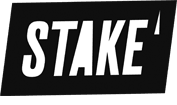The arrival of more beginner-to-intermediate investment platforms has given more power than ever to the everyday investor. Now, investors can build wealth from the comfort of their home, even on their phones.
Whether actively or not, most of us are investors, at least through our KiwiSaver accounts. In an age where buying houses isn’t the given thing that it once was generationally, being able to have an investment portfolio puts a lot more choice into people’s pockets.
Bryan Wilmot is the CMO of investment platform Stake. He joined Duncan Greive on The Fold recently to talk about investing culture.
Duncan Greive: Could you start out by talking about where Stake sits in the market, how you conceive of it and position it differently versus other online investing platforms?
Bryan Wilmot: Absolutely. Stake, we like to say, is where ambitious Kiwis invest. Stake is a share investing platform that offers the best access to the US. There’s a number of options out there from an investing platform perspective, but we’re positioned towards investors that are more actively engaged.
If you look at the broad strokes of all the different types of investors out there, you’ve got people that are high frequency, super sophisticated traders, that know the ins and outs and are very technical, then you’ve got beginners, punters that might just be in it for a quick buck. We sort of sit in the middle of that. We want people that aren’t necessarily the most sophisticated traders that need all the detail in the world, but do have this actively engaged mindset where they actually want to learn about the markets, and they want to grow their wealth over the long term, and they want to be in it for the long term.
We actually try to take people deeper into the market and bring to life the dynamism and the interest that is there in all facets of the market and the investing experience, as opposed to dislocating the markets from the user experience and make it feel like so un-intimidating that you’re not actually even being a participant.
Ten or 15 years ago, I was messing around on Investopedia, and built a little mock portfolio, because there was just no way to directly go into the US market. And yet, it felt like all of the energy and innovation in terms of the sorts of companies that were reshaping the world were coming out of there.
That level of access that’s provided by companies like Stake is quite a profound shift for the traditional mindset of a New Zealand investor – which was previously a property investor, then it became KiwiSaver, which is the definition of passive.
You launched here in 2020, you had this huge boom through Covid, is that sustaining? What do you see as the scale of the opportunity for that sort of customer mindset here?
We certainly see it maintaining. People are in it for the long term, I think the media initially typecast this generation of investors and retail investors as “reckless” and not in it for the long term and “don’t know what they’re doing”. And “as soon as the market turns, they’re going to flee”, which kind of always seems to be the case when a new generation comes and invades an established cultural space.
What we’ve seen, through doing a lot of customer research and speaking to people that are investing, whether with Stake or broadly in the market, is a result of a shift in the macro environment that this generation grew up in. If you think back 30-40 years, how you would mark your progress going forward was very linear. Fewer people back then would get university degrees. As such, that would pretty much guarantee you a job in the space that you wanted to get a job in. So you’d work in that job, work your way up the corporate ladder, you’d maybe move companies a couple of times… but the bouncing around between different career spaces and job types wasn’t really commonplace.
You’d get married, you’d have kids, you’d get into the property market, and you’d start to generate your wealth off the back of that. So it was very clear cut in terms of the mould of how to grow wealth. You then look at this generation, university degrees are completely commoditised, for example, I think it was one in 10, 30 years ago, people who had university degrees, now it’s closer to one in three.
That guarantee of “I’m gonna get the job in this space that I want” is just not a thing anymore. It’s sort of an entry ticket. Corporate ladder climbing is definitely not as linear as it used to be. People are jumping between career types, they’re going from finance to design, and they’re searching for what really makes them tick.
The sureties of the old corporate era where a big corporation would own a particular piece of the business real estate, and it could sit there largely unencumbered for decades – a lot of the energy over the last 20 years has been firms that are directly trying to disrupt that. So you’re investing in the much more chaotic, fluid landscape that is what you’re witnessing out in the world as a young professional.
In terms of that chaotic landscape, the bottom line is that it’s just far harder to progress financially or generally forward, it’s far harder to have the world cut that out for you. And so the reaction to that is saying “it needs to be up to me, I need to take back control, and I need to take ownership of my own progress” and within personal finances, that’s very prevalent.
This idea of, “OK, I need to learn how to invest, I need to learn how to generate wealth”, is a reaction to the way the world is working for this generation. Covid hit, and that was the straw that broke the camel’s back, in that there was a spotlight on the markets, they were highly volatile, they’ve crashed and then continued to boom, people had extra money that they weren’t spending because they weren’t going out and they had extra time because they were sitting at home.
That was maybe the catalyst that opened the floodgate, but the concept and the mentality behind why people want to invest and be actively engaged with the market is because they need to go and take control over wealth generation. For that reason, we’re not seeing it as a flash in the pan, we’re not seeing it as just a thing that happened for a couple of years during Covid. We’re seeing it as this systemic shift in the way that people are engaging with their personal finances.
Listen to the full interview of The Fold, in partnership with Stake, wherever you get your podcasts.


